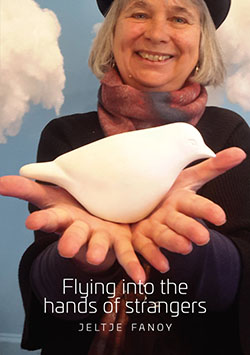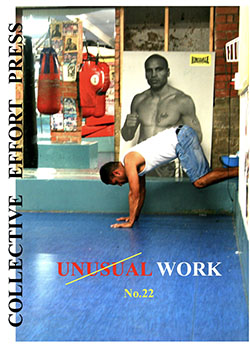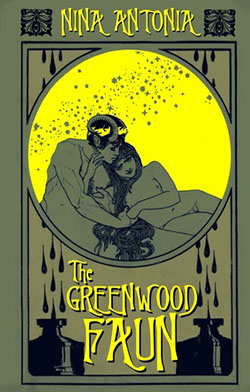 Bloody hell, Barman. I do one review of one poetry book and the bastard sends me these.
Bloody hell, Barman. I do one review of one poetry book and the bastard sends me these.
Now, I don't know how many of you enjoy poetry. Perhaps you consider it in the same memorable way that Lydia Lunch does, calling it 'poohetry'...
Anyway, despite much derision over the years, apparently appreciation of same is on the rise in the USA (I'm not sure whether to whoop or despair) and I'm here to tell you that, first, a poem or two at bedtime or on the bus (anywhere you find yourself titting about purposelessly on the internet or playing those squally games everyone seems to have on their bloody phones) will find your mood altered, your synapses snapping and you will either feel alive or disgusted. A comparison might be buying a 7" single at random ... or a compilation CD.
Second, modern poetry has a mostly deservedly bad name, but so do all forms of music. There are some utterly dreadful folk out there both unable to hold a choon or entertain to compensate. Ditto poets, really. So, if you ain't familiar with the patter of words on the page, think of poetry as another form of underground.
Collective Effort Press have a Facebook page but no actual website. Here's a quote about the press, and 'Unusual Work #18' from australianpoetry.org, written by Grant Caldwell:
"Collective Effort Press eschews financial support from any of the Arts bodies, instead depending on subscriptions and sales to survive. This is the kind of magazine that works away from the ‘art world’ that, as Robert Hughes suggested, is the enemy of art. If you love your art in and around words and language, and you are tired of or bored by what you read elsewhere—or even if you are not—you owe yourself the $10 to buy this issue, at Readings bookstores in Melbourne, or straight from Collective Effort Press, and to subscribe, if you like it as much as I do."
I could almost leave it at that, really, but you know damn well I'm not going to.
First, subscription publications are that most wonderful thing, a step and statement of independence from the expectations of Big Culture; second, they're a tangible demonstration of the demand for something different (regardless of how bad or good it is); and third, subscription publications force Big Culture to recognise that the world they portray and pander to is not the entire world. (I am reminded of the Red Tops in UK reporting the death of Mark E. Smith, despite never having run a story on him in his lifetime, despite the wealth of available scurrilous material).
First thing you need to know about modern poetry: ditch the notions of Wordsworth, Shelley, Coleridge et al. I'm a fan of that lot, won't hear a word against them, but very, very few poets today approach that level of brilliance. Modern poetry (history lesson hereafter, if lazy, skip to next para) really began just over 110 years ago, as poetry became increasingly distant from the real, everyday modern world. There's a lot more to it than that, of course, - check this link to know more - but poets (back in the day when it was still possible to make a living as a poet) like Ezra Pound and T.S. Eliot basically reinvented the way poetry was popularly perceived, written and read.
The second thing you need to know about modern poets is that they are terribly clannish, often a tad desperate (like I say, poetry don't pay) and very, very much in their own artistic world - and that latter is, like beauty, as much a curse as it is a delight to behold.
The third - and last - thing you need to know about modern poetry is that... it's pretty much about whether you 'get it' or not. Like modern art and... popular music.
Just on the off-chance, I think I'll intersperse a plea for the public mangling and spectacular death of Boy George.
Alright. Onward.
One of the comments (by Claire Gaskin) on the reverse of "Flying into the Hands of Strangers" reads; "Poetry that is never separate from a consciousness of language as sound, as utterance, as brought forward by the breath, by the sensate body. This, along with the mastery in lineation, lends a timelessness and tenderness to the political statement."
It might be because I'm a bloke, it might be a whole parcel of reasons, but after reading the entire book, I find I don't like, don't respond to, and don't much care about, any of Jeltje's work. But - as the above quote indicates - there might well be a good chance I'm missing it all entirely.
With both these books there is a CD. Which is pretty impressive for a small publication, I think you'll agree. I mean, the UK music mags often have the things, but given what they offer I am rare enticed to part with the cash... so let's pop Jeltje's CD on.
There are five tracks, and you wouldn't guess from the words on the page what they sound like read, and certainly not accompanied by music. The musicians are suitably creative and the pieces are all good; the production is terrific as well.
Oh, yeah. Fourth thing you need to know about modern poetry: there are the types which should never be read aloud, and those which should; you don't fully 'get' Larkin, for example, until you've heard his distinctive attitudes.
With Jeltje, I liked three of the five tracks (pretty good going, I thought, given that I didn't like the book much).
So I re-read the book.
And changed my mind slightly. I now like some of the poems. But not most. But that's that weird thing, taste.
 Now, onto "Unusual Work #22".
Now, onto "Unusual Work #22".
A chap called Pi 0 (I'm not using the bloody symbol for pi, ffs) edited the book and once more we will find, inevitably, that my taste is not other peoples. For example, the collection begins with 7 pages by Albert Rothstein, who I can imagine reading his drollery before a crowd in a pub, his knowingly dreadful wordplay and receiving yuks at the back... but it really isn't anything which gets my interest, never mind sustains it, so we move on...
The poets I liked were: Anthony Lawrence, Jeremy Kong, Thalia, Kevin Gillam, Matthew Campbell, Les Wicks, Sean O'Callaghan (Pi liked him too, he gets four pages), Jas H. Duke (whose work I thought should perhaps also adorn an art gallery) ...
The editor's own poems I thought should more properly have each been on a canvas in a gallery or a Target shelf (you know those horrible commandments painted on weathered wood?) instead of a book of poetry. Still, there are photographs in here, and photography is as much poetry as anything, really. I don't like them either. No pleasing me, I s'pose. Give me Barry C. Douglas's photographs any day.
Mike Ladd's single poem startled me; another example of a poem looking thusly on the page and not remotely touching me (there's a lot of this in modern poetry, you'll find; the gaps and pauses and other linguistic tinkerings (a self-conscious 'th' instead of 'the', for example) are all techniques (or tricks) utilised to emphasise a point or feel or somesuch ... (but often they just make a rather dull bit of writing stand out.)
Thankfully I notice that Ladd (an SA poetry veteran and former member of early Adel bands like The Lounge and Drum Poetry, both of which were rather bloody wonderful) has a track on the CD, so it's time... Now there's 19 tracks here, and ...
I really do do a lot for you ungrateful bastards, you know that?
Fuck.
Translating the poem to audio is always interesting. Ladd's work, like Jeltje's, doesn't always have the same words promised on the page. Possibly because it would be stretching our attention. So while I like Ladd's 'love and loss of the letter a' on the disc, it's easy to ignore on the page.
We're back to that 'how does it read' thing again, aren't we?
I liked - or was amused by - Jas. H. Duke, Tim Gaze, Sandy Caldow and even the editor, Pi 0 ('Ego Blues Cubist', no more need be said, perhaps).
I greatly enjoyed Peter Murphy (er, not, I suspect, the ethereal bloke from Bauhaus), Jake Core, Sean O'Callaghan's two pieces, and Amanda Stewart's 'mt'.
Now then. Given that my favourite track on 'Exile on Main Street' is 'Ventilator Blues', and my favourite on 'Zombie Birdhouse' is 'Street Crazies', perhaps you'll agree that my taste isn't the same as everyone's - or exactly normal. With modern poetry, I dislike most of it - I plump for Baudelaire before Rollins, Peter Bakowski before Charles Bukowski, and Rimbaud before Rambo (I can leave now if you like...), and Nina Antonia before Fanoy.
Consequently, as far as I'm concerned, poetry publications like this are to be cherished. You'll never hear or read an entire collection you'll universally enjoy. And you'd be a bit of a berk to expect to. What you're doing is investigating - and 'Unusual Work' clearly investigate the possible as well as the possible. I must confess some of the pieces gave me the irrits, but again - if you're going to get stuff that's out on a limb, you should expect that, too. Thing is, there's a good chance you'll enjoy a lot more in these two books than I did.
 Since we're talking poems, and there were definitely a few songs on those two CDs, let's look at someone who should be known to you for her brilliant books on rock'n'roll (The New York Dolls, Johnny Thunders, Peter Perrett, Pete Doherty...).
Since we're talking poems, and there were definitely a few songs on those two CDs, let's look at someone who should be known to you for her brilliant books on rock'n'roll (The New York Dolls, Johnny Thunders, Peter Perrett, Pete Doherty...).
Nina Antonia has many connections, but one is to the Fin de siecle (this will help), but suffice it to say that this world prefigured the modernists, although they were regarded as ultra-modern at the time. In fact, the publication of quarterly periodical "The Yellow Book" (1894-1897) heralded and encouraged new artistic movements which lead us into the Twentieth Century...
Nina Antonia has always been a poet (which comes as no surprise to those of us who've slurped down her gloriously lyrical prose), so here's one of hers.
Fall
Gust-tumbled gifts of fawn and honey
Strewn upon pavements,
A crush of golden parchment
As sunset tumbled down
Dazzling children
For whom leaves are secret signs
Maps from another country
They still remember
But have no words for
Berries scarlet
Pout from hedgerows
Fire-glow and Fly Agaric
Vestiges of the aer-folk
Shoeless in mist
Dancing on pale horizons
Eyes dark as damson
Glittering charms of autumn
A curious harvest
Like a crow’s chorus
Whose insolent rusty caw
Beckons an early nightfall
As they soar and weave
On a cold snap breeze
Little carrion, seeking peace
In cemeteries and steeples
As flowers take a final bow
Shivering in the furthest field
Refusing to yield
If you're still with me, "The Greenwood Faun" belongs in your collection. Get it here. I bought it as soon as I could; loved it.
"The Greenwood Faun" is not a paperback. If you read it while wolfing your kippers and kedgeree you'll inevitably splatter the pages - "The Greenwood Faun" is one of those lovely publications whose presentation, the binding and so on, reflect the content. It's a bloody work of art, that's what. Also, there's not that many copies published, so if you want it, get your skates on.
Here's the premise: Arthur Machen wrote the semi-autobiographical "The Hill of Dreams", about a starving writer who linked himself to an unreal, degenerate twilight world. Nina wonders whatever happened to the manuscript Machen's 'fictional' character was writing - and when that manuscript appears ("The Greenwood Faun") people become... altered. Of course, I can't tell you any more than that, without beginning to give the game away...
This is a rather lovely book, quite disturbingly beautiful. David Tibet liked it enormously, as did SF stalwart Brian Stableford ("Decadent in style and, more importantly, in spirit, "The Greenwood Faun" captures the lush sentiment as well as the mordant irony of the fin-de-siècle, and contrives a delicate balance between them. I loved it") and frankly... you can't get much better praise than that.
If you need more than just Nina's books... check out her website... from whence I'm going to quote from one of her posts (March 2018)...
"I’m writing to you from the deepest point of the ocean, so far down in the terrible icy blue it remains one of the last unexplored regions. You can’t hear me calling from the furthest dungeon in a remote castle in a forgotten land. No one has passed by this place in years. They don’t even know it exists. There is no bird-song, sunset or twilight. Someone has taken down the stars. There’s a tangle of cobwebs where thoughts used to be. I’ve become a ventriloquist’s doll that no one has taken out of the box. Moths are eating my mind. I’m a blank message in a bottle; an S.O.S on an unread telegram from 1910 and lost property that will never be reclaimed. The beautiful paintings have gone from their frames and words in books have become harder to understand than hieroglyphics ... there’s no second layer of skin but just the fact that I’ve written this is something of a triumph, a sign on the road that might lead back to where I was supposed to be going."
C'mon, even Nina's throwaway work tips most other folk's work into the bin. Go get her.
 1/2 - Fannoy
1/2 - Fannoy
 - Unusual Work 22
- Unusual Work 22

 - Nina Antonia
- Nina Antonia

